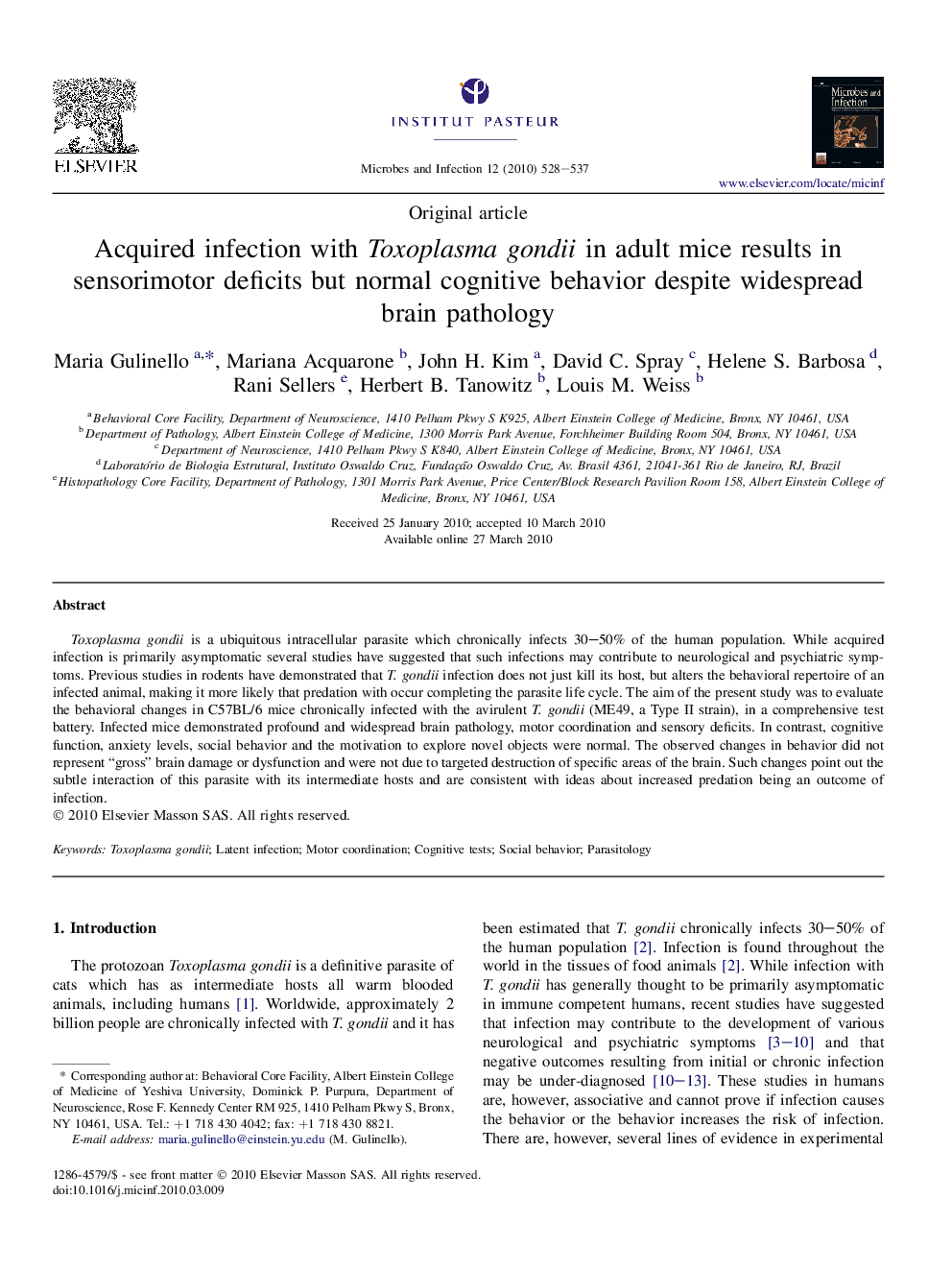| Article ID | Journal | Published Year | Pages | File Type |
|---|---|---|---|---|
| 3415036 | Microbes and Infection | 2010 | 10 Pages |
Toxoplasma gondii is a ubiquitous intracellular parasite which chronically infects 30–50% of the human population. While acquired infection is primarily asymptomatic several studies have suggested that such infections may contribute to neurological and psychiatric symptoms. Previous studies in rodents have demonstrated that T. gondii infection does not just kill its host, but alters the behavioral repertoire of an infected animal, making it more likely that predation with occur completing the parasite life cycle. The aim of the present study was to evaluate the behavioral changes in C57BL/6 mice chronically infected with the avirulent T. gondii (ME49, a Type II strain), in a comprehensive test battery. Infected mice demonstrated profound and widespread brain pathology, motor coordination and sensory deficits. In contrast, cognitive function, anxiety levels, social behavior and the motivation to explore novel objects were normal. The observed changes in behavior did not represent “gross” brain damage or dysfunction and were not due to targeted destruction of specific areas of the brain. Such changes point out the subtle interaction of this parasite with its intermediate hosts and are consistent with ideas about increased predation being an outcome of infection.
